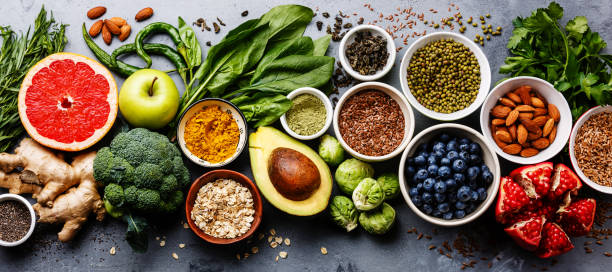If the world of food fascinates you and you are curious about the benefits that can be derived from a healthy diet, then you may want to become a nutritionist biologist.
Between the health sector and that of physical and mental well-being, in fact, we find the figure of the nutritionist, who deals with food like a dietician but with a slightly different approach. The world of nutrition, in fact, has a thousand facets and every diet must be reasoned and drafted by the most suitable professional.
Let’s go into more detail and find out more about the work of the nutritionist biologist, from what he does to how much he earns! We answer all possible questions, so you can understand if the path of human nutrition is the right one for you!
Who is the nutritionist
Let’s start with a lexical clarification: becoming a nutritionist and becoming a nutritionist biologist mean exactly the same thing! They are not two different professions, simply in common parlance, this professional is called only a nutritionist.
Be that as it may, the nutritionist biologist is an expert in the field of nutrition, who deals with developing diets and food plans for healthy individuals, in order to improve their well-being. It makes us feel better about ourselves like a beautician makes us look more beautiful and a personal trainer more trained.
It is therefore not only a question of physical well-being but also and above all psychic. How many times does that couple of pounds more or less make us feel inadequate towards the world and towards ourselves? The nutritionist, with his intervention, helps us to improve but also to accept ourselves, which is the most important thing.
He can draw up diets and nutritional plans but can not propose or prescribe drug therapies. At most he can recommend the use of dietary supplements that can help a specific person’s weight loss or weight gain process.
Difference between becoming a nutritionist and dietitian or dietician
Surely you have heard of them all three, these professionals and, like me, you have also confused them thinking they were the same professional figure. In short, three synonyms of the same word. But no! Let’s quickly see the differences between these 3 works:
- Dietitian. He is also a graduate, this time in Dietetics. He has total autonomy in the administration of personalized diets aimed at making people with pathologies feel better, but he does not prescribe drugs. Becoming a dietician is, of the three, the fastest path. The difference between a dietician and a dietician is the same as that between a radiologist and a radiologist: the first is a doctor, the second is not! It is part of the health profession.
- Nutritionist. He is a doctor with a master’s degree in Biology, so he can develop and prescribe diets based on energy and nutritional needs. He cannot prescribe drugs, but if he wants to, he can suggest the use of food supplements. He cannot diagnose himself, and if he notices anything that could refer to a pathology, he must inform the competent doctor. It is considered a health profession in its own right. The ICDA, i.e. the international confederation of dietetics associations, and the Efad, the European Federations of Associations of Dietitians, both argue that all dieticians are nutritionists, while not all nutritionists are dieticians.
What the nutritionist biologist does
How does a nutritionist work? What are its tasks and the steps to be taken to achieve the well-being of its user? Let’s immediately see the tasks that await you if you decide to become a nutritionist.
- Analysis of the composition of foods, paying attention to the interaction of the different components (sugars, proteins, and fats) with the body.
- Assessment of nutritional needs, which vary based on many factors including age, sex, and physical activity.
- Drafting of diets evaluating the physical conditions and intentions of the user (if he wants to gain weight, weight loss calculator, or maintain a certain weight)
- Reading of biological analysis of urine and blood
- Advise changes in food approaches and harmful habits
- Drafting of diets for schools, company canteens, sports groups, and clinics. Beware that a lot of childcare educators or nurses might hate you for it!
Interviews with users to learn about their relationship with food and their intentions. The first visit is very important in this job, a bit like for the speech therapist or physiotherapist because you have the opportunity to capture as many characteristics as possible of the person in front of you and adjust your modus operandi accordingly. It is necessary to be an empathic and sensitive person for this kind of work.














